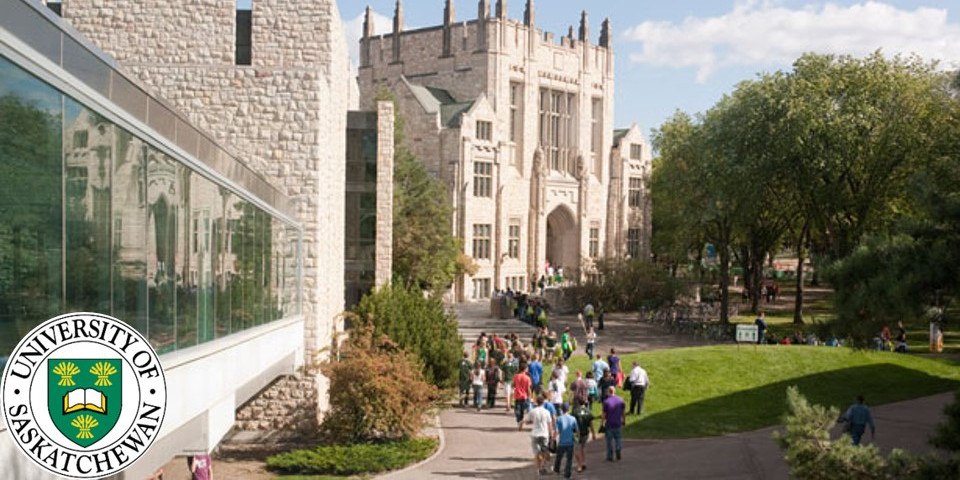WCVM Research Chair in Pollinator Health
The Department of Veterinary Pathology, Western College of Veterinary Medicine (WCVM), University of Saskatchewan, invites applications for a tenure-track faculty position at the Assistant/Associate Professor level in anatomic pathology with a strong research focus on pollinator health.
The successful candidate will be a researcher with demonstrated exceptional research achievements focused on pollinator health and who is qualified for academic tenure-track appointment as assistant or associate professor. They must have demonstrated capacity to conduct independent research and potential to establish extramurally funded research program in pollinator health. The Research Chair in Pollinator Health will be a competent and enthusiastic teacher, scholar, and diagnostician with excellent interpersonal skills and a proven ability to work effectively as part of a team. Expectations are that initially the majority of time and efforts will be dedicated to the establishment of an extramurally funded research program addressing important health issues of managed and wild pollinators, biodiversity and agricultural sustainability. Other duties in anatomic pathology will include teaching veterinary students at both undergraduate and graduate levels, supervision of graduate students, and diagnostic service, usually in the context of clinical teaching. Tenure and promotion decisions will be based on teaching ability and performance, practice of professional skills, and scholarly work. In addition to the above-stated research capacity, the following qualifications are required for this position: DVM (or equivalent); PhD (or equivalent); board eligibility or, preferably, board certification with the American or European College of Veterinary Pathologists (ACVP or ECVP); and eligibility for licensure with the Saskatchewan Veterinary Medical Association (SVMA). ACVP or ECVP certification will be required for tenure award.
The WCVM was the first veterinary college in North America to begin a honey bee research and teaching program, recognizing the high importance of pollinators for the long-term sustainability of agriculture and food security. The WCVM Honey Bee Health Research Team manages ~200 honey bee colonies located at three research apiaries and benefits from a well-equipped, insect research laboratory, enabling them to rear developing honey bees in vitro from larvae into adults. At present, their research focuses on understanding and managing the effects of pesticides and pathogens on honey bee colonies, in partnership with the agricultural industries these colonies support. The WCVM Honey Bee Health Research Program also benefits from being located at the University of Saskatchewan, alongside other leading research institutes, including the Vaccine and Infectious Disease Organization – International Vaccine Centre (VIDO-InterVac with one of the largest Containment Level 3 facilities in North America), the Toxicology Centre, the Canadian Light Source (Canada’s national synchrotron facility), the Canadian Wildlife Health Cooperative, the School of the Environment and Sustainability, and the College of Agriculture and Bioresources
The province of Saskatchewan is located in the center of the Canadian prairies, which is home to 70% of Canada’s honey bee colonies, as well as one of the most endangered ecosystems on the planet, the prairie grasslands, which supports 387 species of bees. Saskatchewan is also home to some of the most intensively farmed cropland in Canada, combined with 20% of Canada’s cattle herd with associated pastures. Accordingly, Saskatchewan is the ideal ‘natural laboratory’ for research focused on pollinator health, biodiversity and agricultural sustainability.
The University of Saskatchewan’s main campus is situated on Treaty 6 Territory and the Homeland of the Métis. The University of Saskatchewan is located in Saskatoon, Saskatchewan, a city with a diverse
and thriving economic base, a vibrant arts community and a full range of leisure opportunities. The University has a reputation for excellence in teaching, research and scholarly activities and offers a full range of undergraduate, graduate, and professional programs to a student population of over 25,000.
Salary bands for this position for the 2020-2021 academic year are as follows:
Assistant Professor: $96,301 to $115,723;
Associate Professor: $115,723 to $135,145;
Professor: $135,145 to $157,804
The position includes a comprehensive benefits package which includes a dental, health and extended vision care plan; pension plan, life insurance (compulsory and voluntary), academic long-term disability, sick leave, travel insurance, death benefits, an employee assistance program, a professional expense allowance, and flexible health and wellness spending program.
Complete applications will include: 1) a cover letter; 2) a statement of professional goals and research interests; 3) current curriculum vitae; and 4) the names and contact information of at least three professionals willing to serve as references. Appropriately signed electronic or paper-based applications should be sent to:
Dr. Susantha Gomis, Head
Department of Veterinary Pathology
Western College of Veterinary Medicine
52 Campus Drive
Saskatoon, SK, Canada
S7N 5B4
Phone: 306 966-7299
e-mail: susantha.gomis@usask.ca
Review of applications will begin May 11, 2022, though applications will be accepted and evaluated until the position is filled. The anticipated start date is July 1, 2022.
The University of Saskatchewan is strongly committed to a diverse and inclusive workplace that empowers all employees to reach their full potential. All members of the university community share a responsibility for developing and maintaining an environment in which differences are valued and inclusiveness is practiced. The university welcomes applications from those who will contribute to the diversity of our community. All qualified candidates are encouraged to apply; however, Canadian citizens and permanent residents will be given priority.
The University of Saskatchewan has instated a number of health and safety requirements for faculty, staff and students in consideration of the COVID-19 pandemic. As of January 4, 2022, being fully vaccinated against COVID-19 is a condition of employment and proof of vaccination is required. The University will consider accommodations requests for individuals in accordance with the requirements of The Saskatchewan Human Rights Code, 2018.










